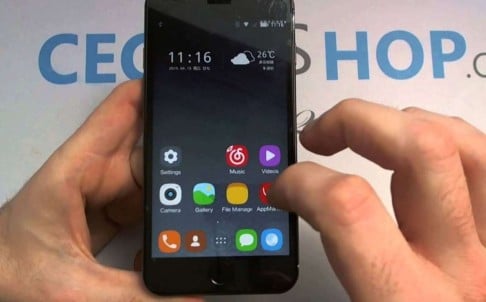Hundreds of Chinese smartphone brands dying as Huawei, Xiaomi and two top rivals occupy half of domestic market
Market saturation and spending power of major players squeezing out smaller brands, industry tipped to consolidate soon around handful of companies
PUBLISHED : Saturday, 12 March, 2016, 2:11pm
UPDATED : Saturday, 12 March, 2016, 2:11pm
Jack Liu
[email protected]

The number of Chinese smartphone brands has dropped from 500 in 2014 to just 100 now, according to industry insiders. Dakele said earlier this week it was suspending its business as it could no longer compete with big-spending brands. Pictured is Dakele’s Big Cola 3. Photo: YouTube
Smaller players in China’s increasingly competitive Android smartphone market are going out of business at a fantastic pace, industry insiders say.
There were around 500 Chinese smartphone brands two years ago but that number has since dwindled to close to 100, Nubia co-founder Mai Donghai said in January. Mai also serves as senior vice president of Nubia, the smartphone brand of telecommunications equipment giant ZTE.
“The industry will consolidate around a handful of big players in the near future,” predicted Lin Renxiang, an analyst from Chinese research firm iResearch.
The four top-selling Chinese companies - Huawei, Xiaomi, Oppo and Vivo - accounted for over 45 per cent of the domestic smartphone market last year, up 10 per cent from 2014, data from research firm IDC showed.

Pundits expect the Chinese market to further consolidate around a handful of domestic brands including Huawei, Xiaomi, Oppo and Vivo. Photo: Handout
“Smaller brands used to sell well among customers without much knowledge of big brands,” Lin said.
“With the help of the internet and major brands’ intensive marketing campaigns, everyone knows and wants to buy big-brand phones now.”
“Large manufacturers also have more bargaining power over suppliers and can thus enjoy much lower
production costs than smaller players,” Lin added.
According to Ding Xiuhong, founder of smartphone start-up Dakele: “The competition is much faster and crueller than we expected”.
Dakele said earlier this week it was suspending its business.
“Internet giants are entering the market, making the competition a battle of who can spend the most money,” Ding posted on Weibo, China’s Twitter-like social media service.
Dakele was founded in 2012 and is based in Beijing and neighbouring Tianjin. It made its name producing cheaper handsets with high specifications.

Journalists check out one of Oppo’s marketing campaigns in this file photo. Photo: SCMP Pictures
Its latest flagship Dakele 3X features a 5-inch screen, quad-core processor and 13 million-pixel camera. The model retails for 999 yuan (US$153).
Dakele joins other fading smartphone makers including Eton Technology and K-touch, two more Chinese manufacturers that have suspended their operations.
Founded in 2004, Shenzhen-based Eton became known for its low-priced feature phones and smartphones with strong batteries. It became insolvent last month, leaving more than 100 million yuan (US$15 million) in unsettled debt, according to China’s National Business Daily.
Unlike Eton, K-touch was once a leading brand in China. It became the country’s No 3 mobile phone vendor after Nokia and Motorola in 2009. Last year, the company suspended most of its smartphone operations citing fierce competition and low profits.
The slowing growth of China’s smartphone market is also giving smaller players fewer opportunities.
As China transforms into a mature market, annual smartphone shipments grew just 1.2 per cent last year, compared to 20 per cent growth in 2014, Research firm IDC said.
“The market will only keep expanding for another year or two,” said China Merchant Securities (HK) analyst Alex Ng.
